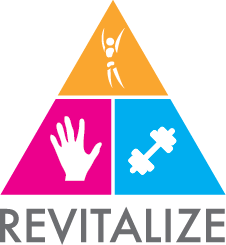How to handle Rejection | #ASKELL by fellow therapist, Joshua Goodchild
Rejection is an interesting one. Why do we feel so disheartened when we continue to not have something which never belonged to us in the first place? Whether that’s a job, a uni place, a spouse etc. We didn’t miss them before we tried to attain them. But after being rejected by that possible reality, we’re heart broken.
I think the crushing of “hope” is the most likely culprit. We painted in our imagination a beautiful future which we have now unfortunately missed out on.
When we hope, we imagine a better future. When that future is crushed, we often hit a low. But this low is often temporary. Many of us are optimistic by nature but even those of us who are less optimistic will still tend to wallow and then summon hope for some other future shortly after experiencing rejection.
The key message here is that hope is essential. It drives us to work towards a better future BUT when that hope is crushed, it can be very painful. To manage this phase, have faith in yourself. The truth is that our deep drivers i.e. to succeed, to love, to grow are like rivers. If a river hits hard rock, we will often navigate around that hard rock to reach the same end eventually. So even if you don’t get that job which you were working so hard towards, don’t worry, there is probably another job which is quite similar to it on the horizon.
The issue with “hope” however, is that we’re betting on an outcome which we don’t control. Psychologically and hormonally, we are readying ourselves for a very positive emotion that will be experienced when the future we had hoped for, comes around. The issue is that when we don’t receive that positive reward, we despair.
There are two Psychological methods which I call on in times like this. One is a Stoic method, summarised in the “Stoic Bowman” and the other is in self conversation / exploration.
I find these methods help to balance the part of the brain which we can control, and the part of the brain which we can’t control.
The Stoic Bowman
The bowman is in control all the way up until the moment the arrow leaves his bow. He can practice 100 hours a week but he is still powerless the moment the arrow leaves the bow. If the arrow is blown off track, the target moves etc, he is not in control. This emphasises preparedness but also surrender. We have to surrender what we cannot control because it is useless to attempt to control the uncontrollable. No matter how much the archer wants the arrow to fly straight, it will continue on its course once it leaves the bow. Therefore it is important to put in the work to execute control over our minds, our trade and our specialities but we must stop trying to control what is completely outside of our control.
The moment the arrow leaves, we have surrendered control. And for what we cannot control, we have no right to accept responsibility
This metaphor beautifully illustrates to me where my focus should be and where it shouldn’t be
Crush the interview and don’t take the results to heart. It is just feedback
Ask the person out on a date and don’t fear the answer. The answer is just a reflection of who they are, not you
Open the business and let the market tell you if you’re aiming straight. It’s just a feel out period
Don’t internalise the perception of others or the reactions of the environment to what you’re trying to achieve. You have no right to
Aim straight and if you miss, pick yourself up and try again
Introspective Conversation
This is my second intervention when managing rejection. The unconscious mind is where we often dump all of the beliefs, feelings and sensations which we don’t feel fits within our psyche. Our psyche is the personality which we wear and display to others. It’s our mask. One problem is that often, how we feel deep down isn’t acceptable for our psyche to portray.
For example if you haven’t succeeded during a job interview, openly displaying anger, jealousy, egotistical behaviours, declaring that you should have got the job because you’re much better than the competition is socially unacceptable. Especially if you were to direct this emotion to the person you want to; the interviewer.
The first step is to acknowledge that all of these feelings have an absolute right to exist. They should be recognised in their own right. You may deem it as immoral for outwardly expressing these emotions but IT IS NOT immoral to feel them. Recognise them and accept them. They’re part of who you are.
The next stage is to converse with yourself about them. This is where we talk to the other “personas” or parts of the brain that otherwise might not have a chance to express themselves. For example, a common trend for me is working myself into the ground. If I had a choice, I wouldn’t sleep, eat, sometimes even socialise because the dominant part of my personality loves to work.
So my conversation might go something like this. I will label A as my dominant persona and B as my secondary drivers
A. I feel so tired. Why do I feel so tired? B. Because I need to rest! I am working 80 hours a week! I want to sleep and spend a day in bed. I want to play PS4 and eat junk food! A. I hear you. I’m sorry. I guess I have been working us into the ground B. Can we just not do anything tonight? In fact. Next week, can you not train? I need the lay in the morning to recover A. Yeah, that’s a good idea. We can do that
And my counselling myself, I can reach a solution. And I often find a private room to have these conversations aloud and I find a solution every time.
A conversation from rejection after an interview might be:
A. You’re feeling pretty rubbish aren’t you? B. Yeah. I should have got that job. Stupid interviewers A. Yeah, I get you. They’ve missed out big time! (soothe the unconscious) B. Haven’t they just! But right now I feel like I might not ever get ahead A. Why do you say that? (ie provide evidence) B. Well, now that I think, this is one of the few times I haven’t got what I wanted A. And you only have to be right out of every 5 or 10 or 20 attempts to get ahead, right? It’s a low risk action to go for a job interview B. That’s true!
In short, we can control our attitude and we can soothe our minds. But we cannot control the outcome. The only option, like the bowman, is to keep attempting to hit the target. And when we don’t hit it, we stand up and take another shot. And when you know you’re not going to hit every target, a great relationship to develop is with the art of practice.
Love practicing
Love:
- taking tests
- building businesses
- flirting
- dating
- taking interviews
- new challenges etc
- Training
Fall in love with the behaviour that produces the desired outcome.
If you love the process, the desired outcome is a bonus.
But, this is all easier said than done. You may want to speak to someone who can help you to fall in love with the process and reduce chronic emotional fluctuations. If you are in pain or not in the best physical condition, then book a free consultation with our team of Osteopaths, Sports Therapists, Physios and personal trainers. If your emotions are all over the place or you don’t feel well in yourself, then speak to our counselors during a free consultation. We have other services like herbal medicine too. All available in Gravesend and online. ]
#ONLYTHEBEST
REVITALIZE CLINICOUR MISSION IS TO UNITE AND PROVIDE THE BEST HEALTH AND FITNESS PRACTITIONERS TO GUIDE YOU TOWARDS YOUR HEALTH AND FITNESS GOALS. OUR GRAVESEND BASED OSTEOPATHS, PHYSIOTHERAPISTS, PERSONAL TRAINERS, COUNSELLORS AND HERBALISTS ARE AVAILABLE FACE TO FACE OR ONLINE

